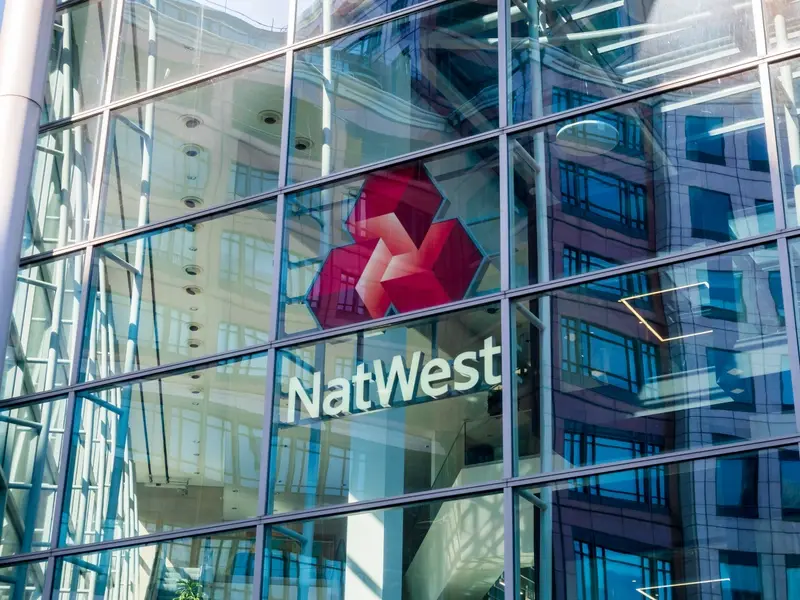
Stock prices in London were mixed at the start of Monday afternoon, with the FTSE 100 down, as shares in some of its larger constituents struggled at the start of the week.
The FTSE 100 index fell 11.34 points, 0.2%, at 7,561.24. The FTSE 250 is up 74.94 points, 0.4%, at 19,137.26, and the AIM All-Share added 1.39 points, 0.2%, at 748.80.
The Cboe UK 100 fell 0.1% to 755.81, the Cboe UK 250 climbed 0.7% to 16,572.23, but the Cboe Small Companies fell 0.3% to 14,497.62.
The CAC 40 in Paris and Frankfurt’s DAX 40 were both 0.3% higher.
Stocks in New York are set for a muted open. The Dow Jones Industrial Average is called down 0.1%, the S&P 500 flat and the Nasdaq Composite a touch higher.
‘Investors are hanging onto every word uttered by anyone affiliated with the major central banks, looking for signs that interest rate cuts are finally on the agenda,’ AJ Bell analyst Russ Mould commented.
‘Expectations that we will soon see this pivot moment have underpinned the pick-up in equity markets since late 2023 and confirmation of the first cut could give another leg-up to stocks and shares. The new trading week saw the spotlight shun on European stocks after ECB Governing Council member Fabio Panetta said the magic moment is ’fast approaching’ for the European Central Bank to reduce rates.’
The pound was quoted at $1.2614 early Monday afternoon, down from $1.2632 late on Friday. The euro stood at $1.0768, down from $1.0783. Against the yen, the dollar was trading at JP¥149.03, down from JP¥149.31.
ING analyst Francesco Pesole commented: ‘The second-best performing currency after the USD of 2024, the pound, is about to face a couple of key data tests this week. Tomorrow, jobs data for January is released, and Wednesday sees the CPI report and Thursday GDP data.
‘Our economics team sees both wage growth and services inflation remaining sticky in the first quarter, meaning that the Bank of England will have no rush to turn to a more dovish communication in the near future. Markets are expecting the BoE to move with a delay (in August) compared to the ECB’s and Fed’s easing cycles. We agree, but also see 100bp (vs 80bp priced in) of cuts by year-end. Some GBP weakness against the EUR down the road is therefore our base case, but the short-term outlook remains quite constructive for sterling.’
It will also be a key week for oil markets. Crude prices were on the decline on Monday, however.
Brent oil was quoted at $81.16 a barrel early Monday afternoon in London, down from $82.03 late Friday.
Scope Markets analyst Joshua Mahony commented: ‘This week sees both Opec and the IEA release their latest monthly reports, with markets keeping a close eye out for any updated supply and demand forecasts. Thus far we have seen the record US output keep a lid on global oil prices, with markets casting aside the historic disruptions to global trade through the Red Sea. However, the recent Saudi decision to reverse the planned 1 million bpd production increase from Aramco highlights the continued efforts to support prices in an oversupplied market. While some will hope that we will soon see a stimulus-led resurgence in Chinese economic activity, we are yet to see any tangible signs of a bounceback that might lift assets such as oil.’
Gold fetched $2,021.68 an ounce, flat from $2,021.73.
In London, share price falls for pharmaceutical firms put pressure on the FTSE 100. GSK and AstraZeneca, two index heavyweights, fell 0.9% and 1.7%.
AstraZeneca shares came into the week on a three-day losing streak, including a more than 6% slide on the day it released annual results.
‘We think this presents a compelling entry point for a best-in-class company,’ analysts at Barclays said on Monday, however.
NatWest shares fell 2.3%. The lender reports annual results on Friday.
AJ Bell’s Mould added: ‘The UK corporate reporting calendar is fairly quiet until Thursday when Relx and Centrica issue results, followed by NatWest on Friday. In the US, Coca-Cola reports on Tuesday, Cisco on Wednesday and Deere & Co and Applied Materials on Thursday. That’s enough to keep investors on their toes.’
Tritax Big Box REIT fell 3.2%, while UK Commercial Property REIT added 5.2%, as the duo announced they have agreed to indicative terms for a tie-up.
It will create the UK’s fourth-largest real estate investment trust by market capitalisation, at nearly £4 billion.
UKCM investors stand to receive 0.444 of a new Tritax Big Box share for every UKCM share they own.
Based on Tritax Big Box’s closing share price on Friday, the deal would value each UKCM share at 71.1 pence and the full company’s equity at £924 million.
The announcement by the two FTSE 250 index constituents represents the latest in a series of mergers of London-listed property companies since the year began. LondonMetric Property and LXi REIT also agreed an all-share merger. Custodian Property Income REIT and abrdn Property Income Trust also struck a deal.
Galliford Try has landed a place in a £3.2 billion affordable homes framework in the UK.
The construction firm said it has won a place on lot 2 of an eight-year Communities & Housing Investment Consortium framework worth £2.5 billion, and lot 3, which is worth £650 million. Lot 2 includes new build projects and Lot 3 regeneration work.
Galliford shares rose 4.5%.
Copyright 2024 Alliance News Ltd. All Rights Reserved.




